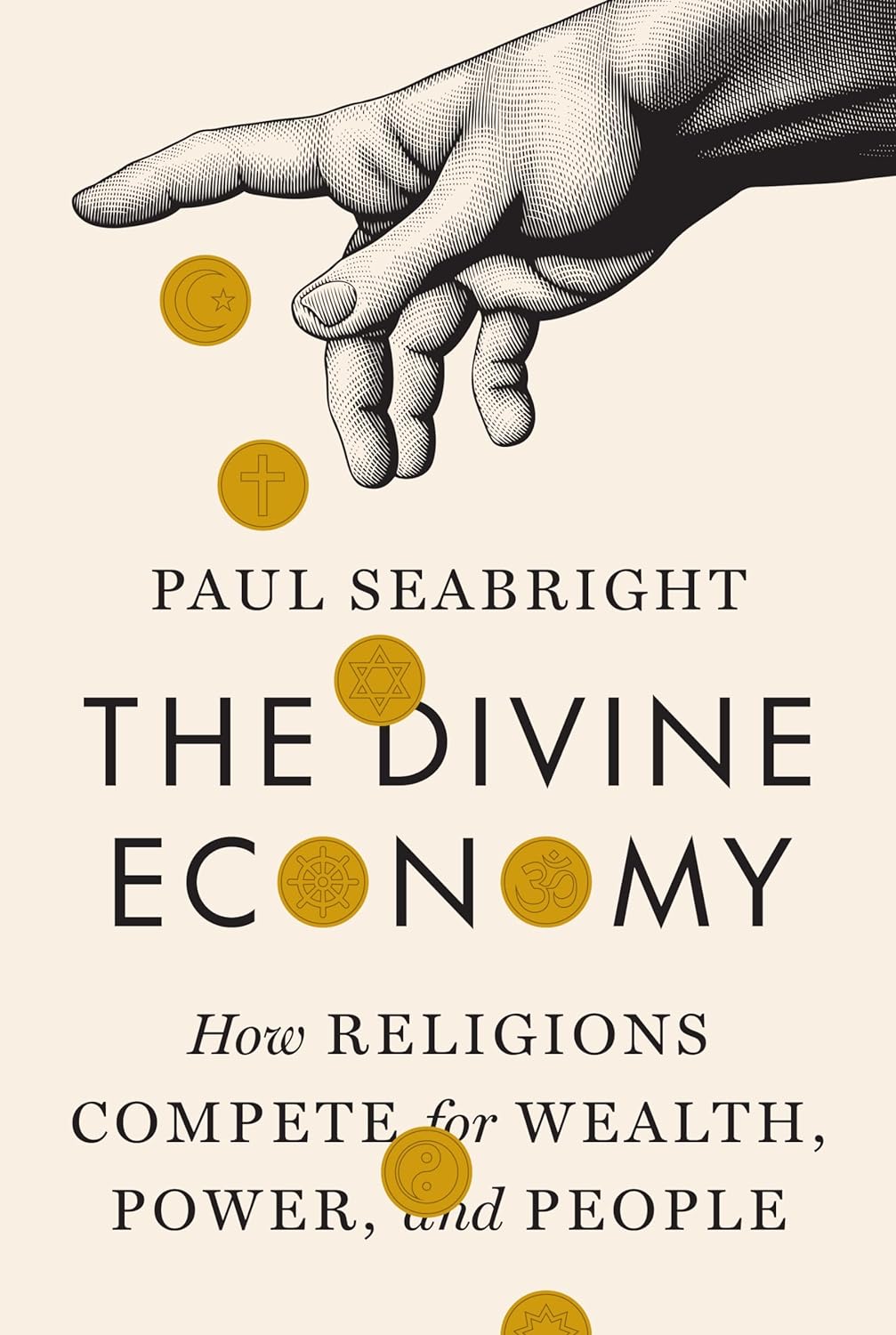
The Divine Economy: How Religions Compete for Wealth, Power, and People
宗教經濟學: 宗教如何爭奪財富、權力與信徒
內容介紹
★入圍金融時報與施羅德商業書獎初選名單(lostlist)
一部對宗教如何在現代世界中變得如此強大的新經濟解釋
儘管在北美和部分歐洲地區宗教似乎有所衰退,但二十一世紀的宗教在全球範圍內依然蓬勃發展。宗教運動之間及內部的激烈競爭使它們累積了巨大的權力和財富。許多傳統的宗教在數千年的歷史中磨練了它們的競爭策略。今天,宗教已經成為一種大生意;像企業一樣,它們必須招聘、籌集資金、分配預算、管理設施、組織交通、激勵成員,並傳播信息。在《宗教經濟學》中,經濟學家保羅·西布賴特(Paul Seabright)認為,宗教運動是一種特殊類型的生意:它們是平台,將尋求不同需求的成員社群聚集在一起——精神滿足、友誼和婚姻網絡,甚至商業機會。他認為,正是這種平台功能使宗教能夠鞏固和施展權力。
這種權力可以被用來做好事,尤其是當宗教運動為其成員提供對抗現代生活衝擊的保險和社區中的價值感時。它也可以被用來做壞事:政治領袖常常將宗教運動工具化,用於專制目的,而宗教領袖可能利用成員的信任,施加性、情感、財務或身體上的虐待,或煽動對外部的暴力。西布賴特以中立的姿態撰寫,利用經濟學的見解來展示宗教和世俗社會如何在一個有些人不需要宗教但許多人仍然熱情響應宗教呼召的世界中共同運作。
相關影片
作者介紹
書評
"Seabright has produced an engaging and insightful book, which I found myself pondering long after I had read the last page."---Jane Shaw, Financial Times
"Enlightening." ― The Economist
"[A]n insightful and enjoyable read. [Seabright’s] platform view makes for a fresh look at religious organizations. I suspect that all scholars of religion economics will find the book equally insightful. For those less familiar with the economics of religion, the book is also an easy-to-read launchpad to the field. . . it will enthuse broad-minded social scientists as well. Finally, since the book addresses ‘big questions’ in an accessible and engaging style, it will also be of interest to nonspecialists."---Sascha O. Becker, Journal of Economic Literature
"Seabright has a great talent for addressing original questions. In this book, he reverses the familiar trope that religion is the antithesis of mere economics. On the contrary, he argues, religions are competing businesses: they attract people by providing services they value, from the mundane — a community in which to find a compatible mate — to the sublime — a sense of life’s meaning."---Martin Wolf, Financial Times
"Combining tough-mindedness and cultural sensitivity, Paul Seabright may help to bring religion nearer to the mainstream of international political debate."---Jonathan Benthall, Times Literary Supplement
"Refreshing."---Helen Nicholls, National Secular Society
"In The Divine Economy: How Religions Compete for Wealth, Power, and People, Paul Seabright offers a novel economic analysis of religions. He describes them as the original platform organisations, rallying groups of users in mutually beneficial relationships just as Instagram or X do today, and points out how religious and secular groups can work together." ― Financial Times
“In this compelling and highly original book, Paul Seabright combines sympathetic vignettes of believers and practices with shrewd analysis to generate insights that illuminate both a key area of contemporary life and its historical roots.”—Robin Briggs, author of Witches and Neighbours: The Social and Cultural Context of European Witchcraft
“This brilliant, challenging, and remarkably wide-ranging book is daringly built around a seemingly simple proposition: all religions are platforms, comparable to the digital platforms that have transformed our world. With inexhaustible curiosity, subtle intelligence, and a deeply sympathetic understanding of human needs and longings, Paul Seabright has illuminated not only the functioning of religions throughout world history but also their ability to survive and flourish in the contemporary world.”—Stephen Greenblatt, author of The Swerve: How the World Became Modern
“The coming of commercial society and its dissolving status-society structures provoked countermovements—nation and religion. Paul Seabright’s brilliant book begins the exploration of how commercial society can be strengthened by religion, and religion strengthened by commercial society.”—J. Bradford DeLong, author of Slouching Towards Utopia: An Economic History of the Twentieth Century
“Erudite, expansive, and elegant, this is a wonderful book. With characteristic eloquence and charm, Seabright demonstrates the continued resilience of religion in debates about economics, politics, and the global challenges facing our world today.”—Sriya Iyer, author of The Economics of Religion in India
“The gods may be beyond all understanding, says Paul Seabright in this marvelous book, but the organizations that speak for them are not. Looking into everything from artificial intelligence to the past, present, and future of popes, he shows how religions, like any other businesses, must compete for consumers and build brand loyalty or lose their market share. Religion will never look quite the same after you have read this book.”—Ian Morris, author of Geography Is Destiny: Britain and the World, A 10,000-Year History
“If religion or economics has always baffled you, this thoughtful and witty book is the key to unlock the mystery. The best of both disciplines for the most skeptical reader.”—Sheilagh Ogilvie, author of The European Guilds: An Economic Analysis
“Have you ever wondered why so many people are religious? Paul Seabright’s beautifully written book draws on economics, history, anthropology, and evolution to explain how religious movements attract power, resources, and followers. Who would not want to join that club? Challenging skeptics who have wondered how people could be so illogical as to follow a religion, Seabright explains why it is not illogical at all.”—Ruth Mace, University College London
“Business economics meets religion—the result is original, illuminating, sometimes surprising, and always enjoyable to read.”—John Kay, coauthor of Radical Uncertainty: Decision-Making for an Unknowable Future

